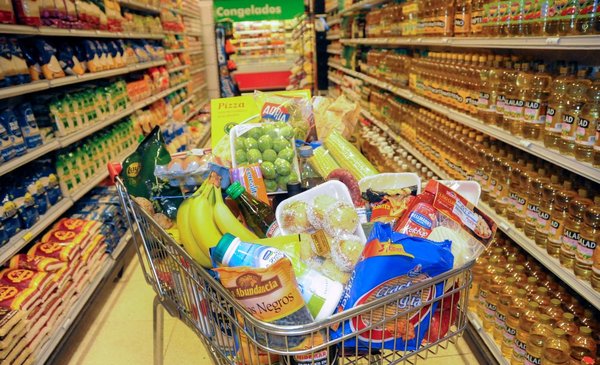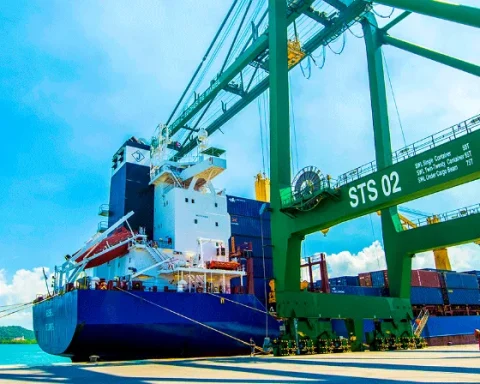It is a fact. After the rebound that most of the economies are experiencing after the debacle due to the pandemic, inflation has gone from being a headache to a migraine for consumers and all kinds of companies globally.
This has been warned in their 2021 financial reports by the large multinationals in the consumer goods industry, who are already considering ways to mitigate the increase in their costs.
nestle, the largest food and beverage company in the world, warned on thursday after publishing its 2021 results that profitability could decline for the second consecutive year in 2022. “There is almost no place in the company that is exempt from inflation now,” said its CEO, Mark Schneider, quoted by Bloomberg.
This caused the gross margin to decrease by 130 basis points in the costs of raw materials, packaging, transportation and energy, especially in the second half. The impact was “partially offset by price increases, operating leverage and efficiencies,” reported the parent company of brands such as Nescafe, Ideal and Savory.
For its part, the brewery Heineken communicated in his presentation on Wednesday than in 2022 expects to be “significantly” affected by inflation and supply chain pressurespointing out that the cost of its inputs would increase in the middle of the decade.
“We will offset these increases by pricing in absolute terms, which may result in lower beer consumption,” the company said.
Unilever, For his part, he warned about a hit to profitability in the face of 2022 due to a drastic increase in input costs. Alan Jope, CEO of the company, stated that this has been Unilever’s “main challenge” in 2021.
The firm behind brands like Maizena, Hellmann’s, Lipton, Drive and Sedal wait one inflation estimated at more than 2 billion euros (about US$ 2,267 million) during the first semester, which could moderate in the second to about 1,500 million (about US$ 1,700 million). Reuters notes that “Unilever is particularly exposed due to its reliance on emerging markets and food, where inflation is particularly high.”
In their respective results conferences, Coca-Cola and PepsiCo made similar comments about their outlook this year.
“Overall, inflationary and supply chain pressures continue to affect costs on various fronts of the business, including input costs, transportation, marketing and operating expenses,” said James Quincey, CEO of Coca-Cola. -Line.
“As we move into a world of higher inflation, I expect category prices are likely to rise. And at least to date, we haven’t seen much elasticity,” said PepsiCo CFO Hugh Johnston.
persistent changes
With the pandemic covid-19, the supply chains that enable the development of international trade have suffered disruptions as a result of the sanitary measures taken by governments, including tighter controls on trade procedures and stimulus packages that create worker shortages in key jobs.
“Changes in health policy, aggravated by protocols that take a long time and the disarticulation of the distribution of vaccines, have made it difficult for products to reach the market,” says the vice president of the studies division of the Council on Foreign Relations, Shannon K. O’Neil, in Foreign Affairs magazine.
Although there are factors directly related to covid-19, O’Neil points out that others “are the result of millions of workers having made other decisions in their lives, for example, leaving the nomadic uncertainty of transport for a more stable and better paid daily job.”
The Federal Reserve is already aiming to accelerate the pace of interest rate hikes to control the considerable increase in inflation, which in the US increased in January at a rate not seen since 1982marking an annual variation of 7.5%.
For the consulting firm IHS Markit, the world market has seen the last week “caught between the crosswinds of geopolitical risks and inflation concerns, the latter accompanied by increasingly tightening central bank expectations.”
The Food Price Index of the United Nations Food Organization (FAO) last year it marked 125.8, an annual figure not seen since 2011. Now, the monthly indicator was 128 points in August and from there it has increased to 135.7 in January 2022, which represents an increase of 19.5% in 12 months.
“The rise in the index in January was due to considerable increases in the sub-indices for vegetable oils and dairy products,” the agency notes. These divisions saw annual increases of 33.9% and 18.7%, respectively.
In the division of cereals, he cites “the uncertainty due to the increase in political tensions in the Black Sea region”, alluding to the conflict between Russia and the West in Ukraine, as one of the factors that has prevented a further decline in the prices of wheat.
Chile and the region
In Latin America, an IHS Markit report sees rising shipping costs and delays as the main disruption, noting that the US and China, countries “highly affected by port bottlenecks,” are its main shipping markets. export.
“It is likely that export delays continue through 2022as some Chinese ports continue to be closed due to covid-19 and trucks and warehouses suffer from a shortage of personnel in the US,” the document highlights.
The rating agency Moody’s warns meanwhile, “higher food and energy prices, as well as currency devaluations have affected most of the region’s large economies, including Brazil, Chile, Colombia, Mexico and Peru.” Thus, predicts successive monetary adjustments and inability to meet the inflationary goals of issuers.
In Chile, the CPI for January was well above market expectations and led to inflation 7.7% in 12 monthsthe highest since the end of 2008. Financial operators expect that at the end of March, the Central Bank’s advice will raise the interest rate by 150 basis points, setting it at 7%.
According to Reuters, G20 finance ministers and central bank governors discussed global inflation issues at their current round of talks in Jakarta, Indonesia, which ended on Friday. They would have pledged to use “all available political tools to deal with the impacts of the pandemic”, but warned that future political space will likely be “narrower and more unequal”.

















